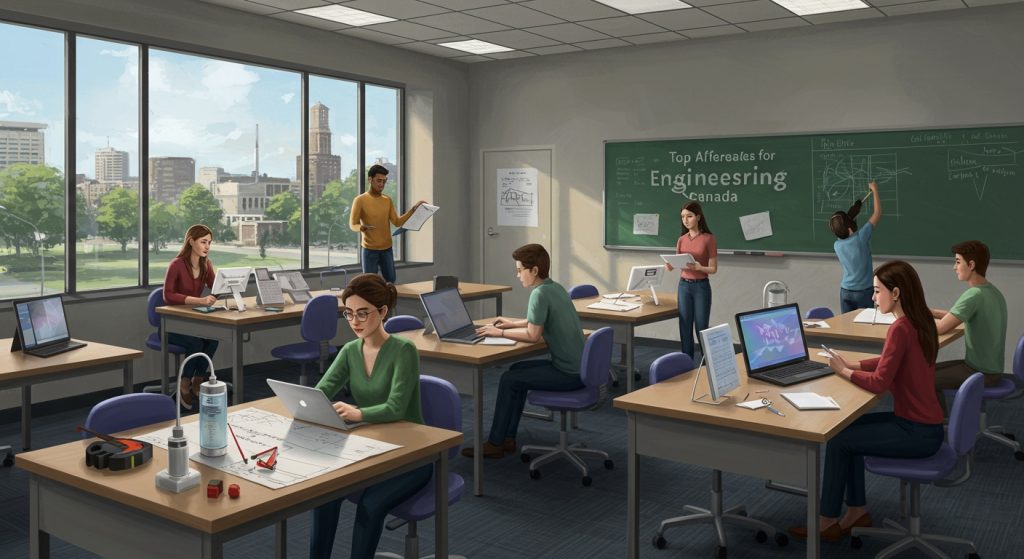Germany stands as a powerhouse for mechanical engineering innovation, drawing aspiring masters students globally. But where to begin? The German landscape boasts a dense network of universities, each offering specialized tracks from automotive engineering, fueled by industry giants like Volkswagen and BMW, to advanced manufacturing and robotics, propelled by initiatives like Industrie 4. 0. Selecting the right program hinges on understanding key differentiators: research focus, industry partnerships providing invaluable hands-on experience. Specialized faculty expertise. Evaluating programs based on these factors unlocks pathways to cutting-edge research and coveted industry placements. Discover the top German universities that can launch your mechanical engineering career.

Understanding Mechanical Engineering in the German Context
Mechanical Engineering, at its core, deals with the design, construction. Operation of machinery. In Germany, this field is deeply intertwined with the country’s manufacturing prowess, particularly in automotive, aerospace. Automation industries. A Master’s degree in Mechanical Engineering here often emphasizes advanced topics such as:
- Advanced Materials: Exploring new materials and their applications in engineering design.
- Computational Mechanics: Using computer simulations to assess mechanical systems.
- Mechatronics: Integrating mechanical, electrical. Computer engineering principles.
- Automation and Robotics: Focusing on the design and control of automated systems.
The German approach to mechanical engineering education blends theoretical knowledge with practical application, ensuring graduates are well-prepared for industry challenges. This is often achieved through mandatory internships, research projects with industry partners. Hands-on laboratory work.
RWTH Aachen University
RWTH Aachen consistently ranks among the top engineering universities in Germany and worldwide. Its Mechanical Engineering program is known for its breadth and depth, offering specializations in areas such as:
- Production Technology
- Automotive Engineering
- Aerospace Engineering
- Energy Engineering
What sets RWTH Aachen apart is its strong industry connections. The university maintains close ties with major German companies, including Siemens, Bosch. ThyssenKrupp, providing students with ample opportunities for internships, research collaborations. Job placements. The university also boasts state-of-the-art facilities, including extensive research labs and workshops.
Real-world Application: RWTH Aachen is heavily involved in research related to Industry 4. 0, focusing on developing smart factories and automated production processes. Students can participate in projects involving real-time data analysis, machine learning. IoT integration in manufacturing environments.
Technical University of Munich (TUM)
TUM is another leading university in Germany, renowned for its focus on innovation and entrepreneurship. Its Mechanical Engineering program offers a wide range of specializations, including:
- Robotics, Cognition, Intelligence
- Energy Technology
- Product Development
- Simulation Sciences
TUM emphasizes an interdisciplinary approach, encouraging students to collaborate with researchers and professionals from other fields, such as computer science, electrical engineering. Business administration. The university also has a strong entrepreneurial ecosystem, supporting students in developing and launching their own startups.
Key Technology: TUM is a pioneer in the field of robotics. The university’s robotics labs are equipped with advanced robots and simulation tools, allowing students to develop and test new robotic systems for various applications, including manufacturing, healthcare. Logistics. This includes the development of collaborative robots (cobots) designed to work safely alongside humans.
Karlsruhe Institute of Technology (KIT)
KIT is a research-oriented university with a strong focus on engineering and natural sciences. Its Mechanical Engineering program offers specializations in areas such as:
- Automotive Engineering
- Energy Technology
- Production Engineering
- Materials Science
KIT is particularly known for its research in energy technologies and sustainable engineering. The university’s research centers are involved in developing innovative solutions for energy efficiency, renewable energy. Environmental protection. Students have the opportunity to participate in cutting-edge research projects related to these areas.
Use Case: KIT is actively involved in the development of new battery technologies for electric vehicles and energy storage systems. Students can gain hands-on experience in designing, testing. Optimizing battery systems, contributing to the advancement of sustainable transportation and energy solutions. You can explore more about studying engineering in Australia’s Premier Engineering Programs: A Ranking by Specialization.
University of Stuttgart
The University of Stuttgart has a long tradition of excellence in engineering education and research. Its Mechanical Engineering program offers specializations in areas such as:
- Simulation Technology
- Systems Engineering
- Mechatronics
- Development and Design
The University of Stuttgart is particularly strong in simulation technology and computational engineering. The university’s High-Performance Computing Center Stuttgart (HLRS) provides students and researchers with access to state-of-the-art supercomputing resources, enabling them to conduct complex simulations and analyses of mechanical systems.
Component Comparison: Consider the difference between Finite Element Analysis (FEA) software used at the University of Stuttgart and simpler CAD software. While CAD software is primarily used for creating 3D models, FEA software allows engineers to simulate the behavior of these models under different conditions, such as stress, strain. Temperature. This enables them to optimize designs and predict performance before physical prototypes are built.
Technical University of Darmstadt
TU Darmstadt is a research university with a strong focus on engineering and details technology. Its Mechanical Engineering program offers specializations in areas such as:
- Thermo-Fluids and Combustion
- Mechatronics
- Production Engineering
TU Darmstadt is known for its research in the field of mechatronics, which combines mechanical, electrical. Computer engineering principles. The university’s mechatronics labs are equipped with advanced sensors, actuators. Control systems, allowing students to design and build intelligent machines and systems.
Explanation of Key Term: Mechatronics is the synergistic integration of mechanical engineering with electronics, control engineering. Computer science to design and manufacture useful products. A common example is an anti-lock braking system (ABS) in a car, which uses sensors, electronic control units. Mechanical actuators to prevent wheel lockup during braking.
Choosing the Right University
Selecting the right university for a Master’s in Mechanical Engineering depends on individual interests, career goals. Academic background. Consider the following factors:
- Specialization: Choose a university that offers specializations aligned with your interests.
- Research Opportunities: Look for universities with strong research programs and opportunities to participate in research projects.
- Industry Connections: Consider universities with close ties to industry, providing opportunities for internships and job placements.
- Location: Think about the location of the university and its proximity to relevant industries and research institutions.
- Admission Requirements: Check the admission requirements and eligibility criteria for each university.
Conclusion
Choosing the right German university for your Mechanical Engineering Master’s is a significant step, blending academic excellence with practical application. Consider this not just as an academic pursuit. As an investment in your future. While rankings offer a guide, remember your personal research focus and career goals. For instance, RWTH Aachen is renowned for its industry connections, providing invaluable practical experience, while TU Munich offers a cutting-edge research environment. Looking ahead, the increasing focus on sustainable engineering and Industry 4. 0 means specializing in areas like renewable energy systems or advanced manufacturing could be a game-changer. Begin networking now, even before applying. Attend virtual events, connect with alumni. Explore research opportunities. Your future in mechanical engineering is waiting to be built – start laying the foundation today. Remember, your commitment will drive your success.
FAQs
So, what are some really good universities in Germany if I want to do my Master’s in Mechanical Engineering?
Okay, think of it like this: Germany’s a powerhouse for engineering, right? For Mech Eng, you’re looking at places like RWTH Aachen University – seriously top-notch, very competitive. Then there’s Technical University of Munich (TUM), another giant in the field. Also, consider the Karlsruhe Institute of Technology (KIT), known for its research focus. Those are your ‘big three,’ but don’t sleep on TU Berlin or the University of Stuttgart either!
Are these universities tough to get into? Like, what kind of grades are we talking about?
Yeah, let’s be real, they’re competitive! Especially RWTH Aachen and TUM. Generally, you’ll need a strong Bachelor’s degree (think a GPA of 3. 0 or higher on a 4. 0 scale. Check their specific requirements). Good grades in math, physics. Core mechanical engineering subjects are crucial. But it’s not just grades – your application essays and any relevant experience (internships, projects) matter too!
What kind of mechanical engineering specializations are usually available at these German universities?
You’ve got a ton of options! Common specializations include things like Automotive Engineering, Production Engineering, Energy Technology, Computational Engineering. Robotics. Each university has its strengths; for example, TUM is strong in automotive and aerospace, while KIT excels in energy and environmental technologies. Do some digging on their websites to see what aligns best with your interests.
Do I need to know German to study Mechanical Engineering at these places?
Good question! Many Master’s programs are taught in English, especially at the universities I mentioned. But, even if the program is in English, learning some German will significantly improve your experience living in Germany. Plus, some courses or seminars might be in German. It’ll help you network and find internships.
What about tuition fees? I heard German universities are cheaper.
That’s generally true! Public universities in Germany typically don’t charge tuition fees for Master’s programs to both domestic and international students, except for some federal states that reintroduced tuition fees for non-EU students. But, there are semester fees (Semesterbeitrag) that cover things like student services, public transportation, etc. These are usually a few hundred euros per semester.
Okay, so I get accepted. What’s student life actually like in these university towns?
It varies a bit depending on the city! Aachen is a classic student town, so expect a lively atmosphere. Munich is bigger and more international. Also more expensive. Stuttgart is an industrial hub, offering plenty of internship opportunities. In general, German university life involves a good balance of studying, socializing. Exploring. There are lots of student organizations, sports clubs. Cultural events. Get ready for a great experience!
Are there any scholarships specifically for international students studying Mechanical Engineering in Germany?
Definitely! The DAAD (German Academic Exchange Service) is your best bet for scholarships. They offer a wide range of programs for international students, including specific scholarships for Master’s students. Also, check the websites of the individual universities, as they might have their own scholarship programs as well. Start your search early, as deadlines can be competitive.



